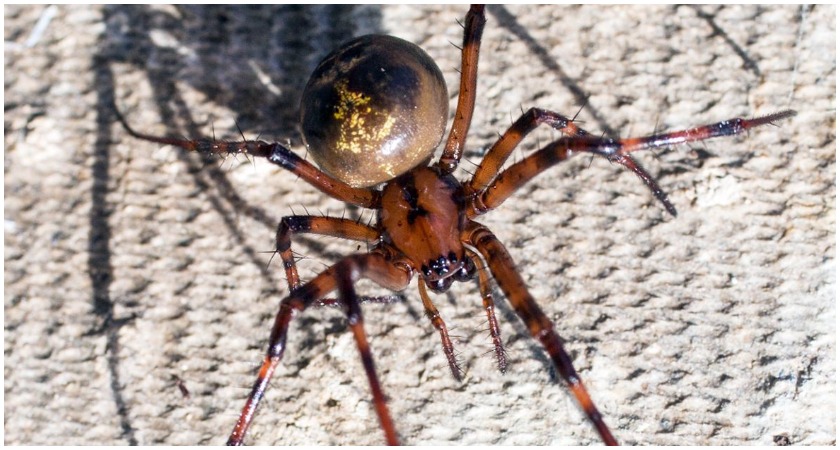A SPIDER which has become prevalent in Ireland in recent years is more venomous than first thought, researchers at NUI Galway have discovered.
The False Widow spider, native to the Canary Islands and Medeira but which has spread worldwide, is now extremely common in Ireland and the UK.
It is not thought to be dangerous and is not life threatening, but a study by researchers in NUI Galway has confirmed that a bite from the spider can be more toxic than originally reported.
Due to similarities in looks, the False Widow is named after the deadly Black Widow spider, which is one of the world's most venomous and feared arachnids, and the research discovered that 111 out of 140 toxins found in the spiders' venom were common to toxins found in Black Widows.
 The False Widow spider can cause "intense pain", swelling, flu-like symptoms and muscle stiffness (Picture: Getty Images)
The False Widow spider can cause "intense pain", swelling, flu-like symptoms and muscle stiffness (Picture: Getty Images)The study, undertaken in collaboration with scientists in Belgium, also found that reports of venomous bites are becoming more common in Ireland, and that victims report "intense pain" and swelling which lasts several days.
Flu-like symptoms and limb stiffness were also among the side effects of a False Widow bite, the study reported.
There is no need to fear the False Widow however, lead author John Dunbar wrote, as bites would rarely need medical treatment-- and in fact, the study into the spiders' venom would actually assist healthcare professionals.
The study and research has been published in the journal Toxins, and can be read in full here.

